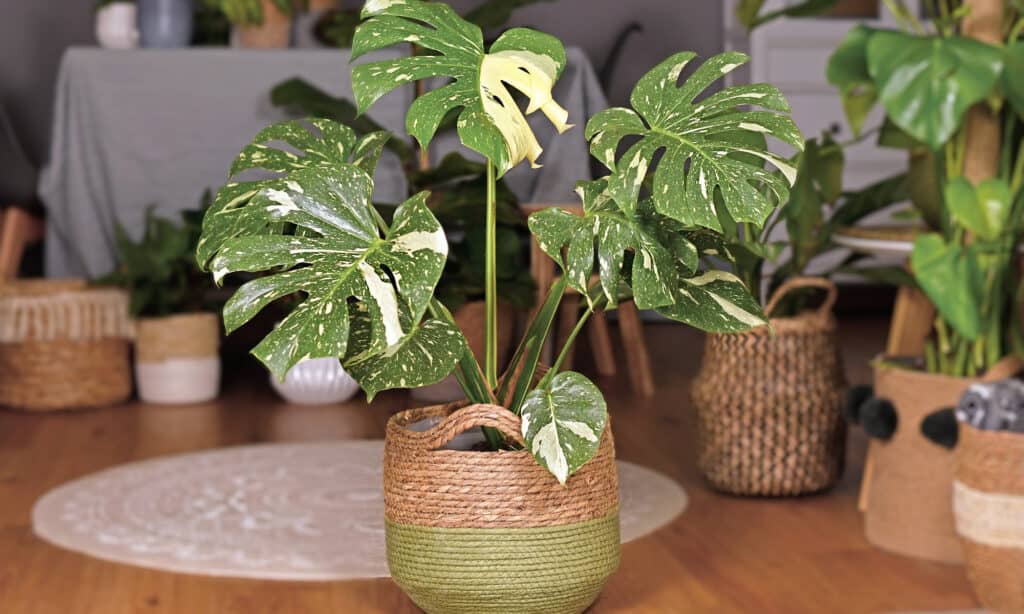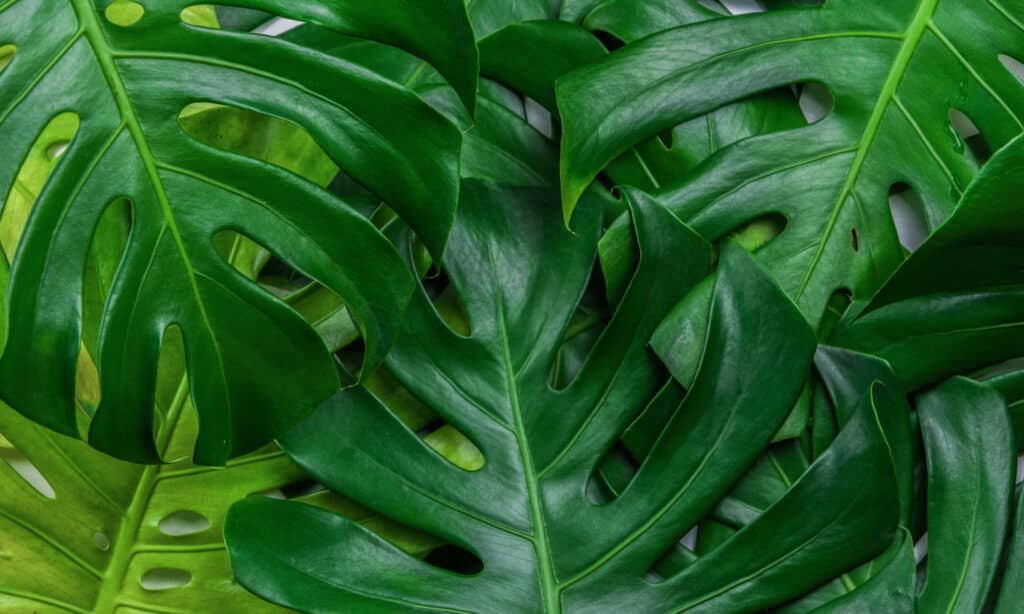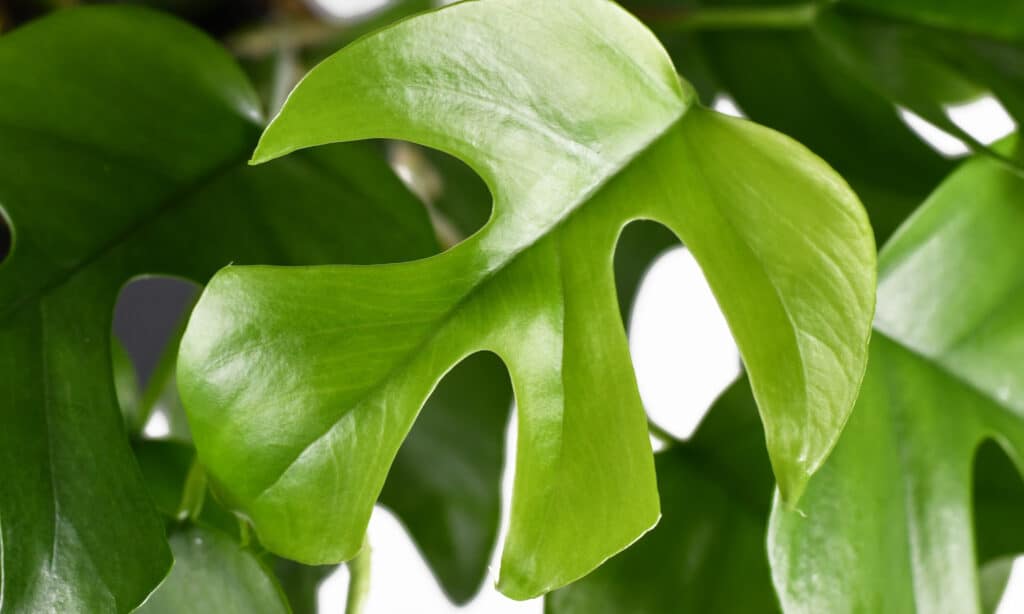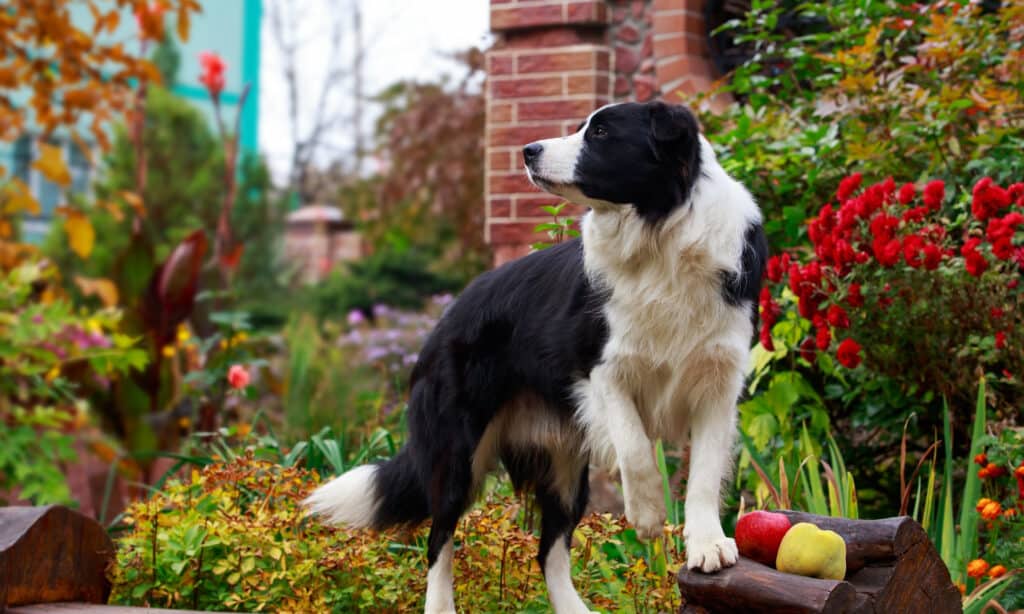Monstera plants have become a trendy houseplant for their unique, tropical appearance and easy-to-care-for nature. However, as a dog owner, it is important to consider whether these plants are safe to have around your furry friend. In this blog, we will explore the question: are Monstera plants toxic to dogs? We will delve into the potential dangers of Monstera plants, signs and symptoms of ingestion, and what you should do if your dog eats this plant. Additionally, we will cover prevention tips and the reasons why dogs may be drawn to these plants. As pet owners, our priority is always the safety and well-being of our furry friends, so let’s dive into this important topic together.

What Are Monstera Plants?
Monstera plants, also known as Monstera deliciosa or the “Swiss cheese plant,” are tropical plants native to Central and South America. They are known for their large, glossy leaves with unique patterns of holes and splits. Monstera plants are popular indoor plants due to their unique appearance and ability to thrive in low-light conditions. They are relatively easy to care for and can grow up to ten feet tall. While Monstera plants are generally safe for humans, it is important to consider whether they pose any risks to our furry friends, particularly dogs.
Are Monstera Plants Toxic To Dogs?
Yes, Monstera plants can be toxic to dogs. The plant contains a compound called calcium oxalate crystals, which can cause irritation and swelling of the mouth, lips, and tongue when ingested. This can lead to drooling, difficulty swallowing, and even vomiting. In some cases, more severe symptoms such as respiratory distress, seizures, and kidney damage may occur. Therefore, it is essential to keep Monstera plants out of reach of dogs and to take immediate action if you suspect your dog has ingested any part of the plant.

What Should You Do If Your Dog Eats Monstera Plants?
If you suspect that your dog has eaten any part of a Monstera plant, it is important to take immediate action. Here are the steps you should follow:
- Remove any remaining plant material: If you notice that your dog has ingested any part of a Monstera plant, remove any remaining pieces of the plant from their mouth and surroundings.
- Observe your dog’s symptoms: Watch for any signs or symptoms of plant ingestion, such as drooling, pawing at the mouth, difficulty swallowing, vomiting, or diarrhea.
- Contact your veterinarian: If your dog shows any signs of illness, or you are unsure if they have ingested any part of the plant, contact your veterinarian immediately. Your vet may recommend bringing your dog in for an examination or inducing vomiting if the ingestion occurred recently.
- Provide supportive care: Depending on the severity of the symptoms, your veterinarian may recommend providing supportive care, such as administering fluids or medication to relieve pain and discomfort.
Remember, the sooner you seek veterinary care, the better the outcome will be for your furry friend.
Potential Physical Dangers Presented by Monstera Plants
The physical dangers presented by Monstera plants are primarily due to the presence of calcium oxalate crystals. When ingested, these crystals can cause a range of symptoms, including irritation and swelling of the mouth, lips, and tongue. In severe cases, ingestion of Monstera plants can lead to respiratory distress, seizures, and kidney damage.
If your dog ingests a significant amount of Monstera plant material or exhibits any severe symptoms, it is crucial to seek veterinary care immediately. The longer your dog goes without treatment, the more severe the symptoms may become.
In addition to the physical dangers, it is also important to note that Monstera plants have large leaves that can pose a choking hazard if ingested whole. It is important to keep these plants out of reach of curious dogs who may be tempted to nibble on the leaves.

Signs and Symptoms of Monstera Plant Ingestion
The signs and symptoms of Monstera plant ingestion in dogs can vary depending on the amount ingested and the individual dog’s sensitivity to the plant. Here are some common signs and symptoms to watch for:
- Drooling and pawing at the mouth
- Swelling of the lips, mouth, and tongue
- Difficulty swallowing
- Vomiting
- Diarrhea
- Lethargy
- Loss of appetite
- Respiratory distress (e.g., coughing, wheezing)
- Seizures (in rare cases)
- Kidney damage (in severe cases)
If you notice any of these symptoms in your dog and suspect that they have ingested Monstera plant material, it is essential to seek veterinary care immediately. Early intervention can prevent more severe symptoms and improve your dog’s chances of a full recovery.
When Should You Take Your Dog To The Vet?
If you suspect that your dog has ingested any part of a Monstera plant, it is always better to err on the side of caution and contact your veterinarian immediately. They can provide guidance on whether or not you need to bring your dog in for an examination.
However, there are certain situations when you should take your dog to the vet right away, such as:
- Your dog has ingested a significant amount of Monstera plant material.
- Your dog is exhibiting severe symptoms, such as difficulty breathing or seizures.
- Your dog has preexisting medical conditions that could be exacerbated by the ingestion of Monstera plants.
- You are unsure if your dog has ingested any part of the plant, but they are exhibiting unusual symptoms.
Remember, the faster you seek veterinary care, the better the outcome will be for your furry friend.

Prevention Is The Best Medicine – How To Prevent Your Dog from Eating Monstera Plants
Prevention is always the best medicine when it comes to keeping our furry friends safe. Here are some tips on how to prevent your dog from eating Monstera plants:
- Keep Monstera plants out of reach: This is the most obvious and effective way to prevent your dog from ingesting Monstera plant material. Keep plants on high shelves, in rooms that are off-limits to your dog, or behind barriers.
- Train your dog: Teach your dog commands such as “leave it” and “drop it” to discourage them from chewing or ingesting non-food items.
- Provide alternative chew toys: Some dogs may be more prone to chewing on plants out of boredom or anxiety. Providing alternative chew toys can help redirect their attention.
- Monitor your dog: Keep an eye on your dog when they are in the same room as Monstera plants, and discourage them from approaching the plants.
By following these tips, you can help ensure that your furry friend stays safe and healthy, even in the presence of potentially toxic plants like Monstera.

So, Why Do Dogs Eat Monstera Plants?
There are several reasons why dogs may be drawn to Monstera plants:
- Curiosity: Dogs are naturally curious animals, and the unique shape and texture of Monstera leaves may attract their attention.
- Boredom: Some dogs may chew on plants out of boredom, especially if they are left alone for long periods of time.
- Nutritional deficiency: In rare cases, dogs may eat plants as a way to supplement their diet with missing nutrients. However, this is unlikely to be the case with Monstera plants.
- Anxiety: Dogs with separation anxiety or other forms of anxiety may chew on plants as a way to relieve stress.
Regardless of the reason, it is important to prevent your dog from ingesting Monstera plant material. By following the prevention tips outlined earlier, you can help keep your furry friend safe and healthy.
Conclusion
In conclusion, while Monstera plants may be a popular indoor plant choice for their unique appearance and easy-to-care-for nature, they can be toxic to dogs. The presence of calcium oxalate crystals in the plant material can cause irritation and swelling of the mouth, lips, and tongue when ingested, leading to a range of symptoms that can be potentially life-threatening.
If you suspect that your dog has ingested Monstera plant material, it is essential to take immediate action and seek veterinary care. Remember, prevention is always the best medicine, so take steps to keep Monstera plants out of reach of your furry friend and provide alternative chew toys to redirect their attention.
By being aware of the potential risks associated with Monstera plants and taking steps to prevent ingestion, you can help ensure that your furry friend stays safe and healthy.
~Sheena
